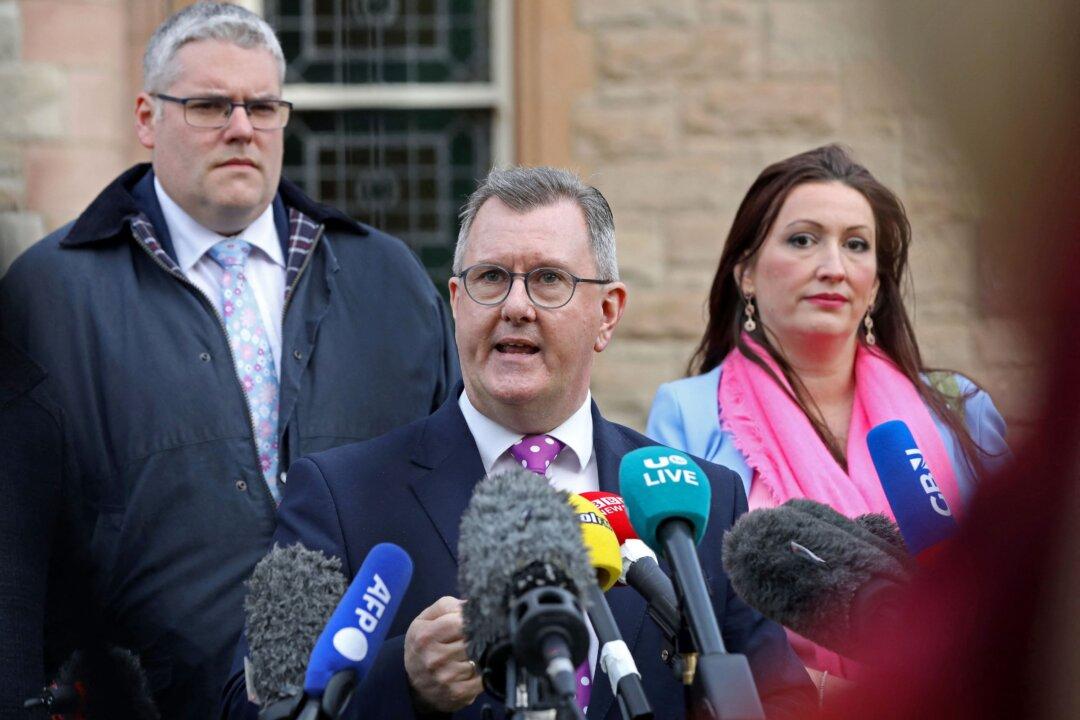The Democratic Unionist Party (DUP) will vote against the UK government on the new UK–EU deal on post-Brexit trading arrangements for Northern Ireland, party leader Sir Jeffrey Donaldson has said.
The so-called Windsor Framework—which Prime Minister Rishi Sunak agreed with the European Commission President Ursula von der Leyen last month—aims to solve the dispute between the UK and the EU over the Northern Ireland Protocol by significantly reducing the number of post-Brexit checks on goods entering Northern Ireland from Great Britain.





